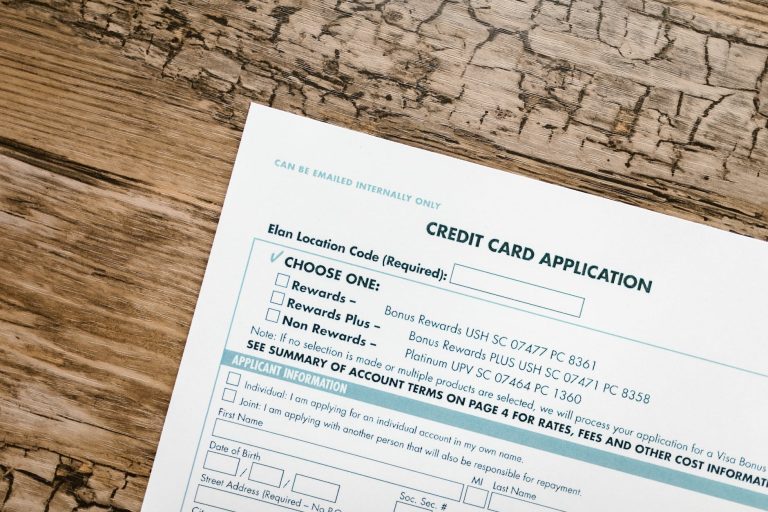Can Debt Collectors Garnish Wages
In the realm of consumer debt, understanding the legal, financial, and emotional implications is paramount. It is not uncommon for individuals to find themselves facing relentless calls and letters from debt collectors, adding to the already daunting burden of financial stress. One pressing question arises: can debt collectors garnish wages? Navigating this complex issue requires a comprehensive understanding of the applicable laws and regulations. This article aims to shed light on the subject, equipping you with the knowledge needed to protect your hard-earned wages and make informed decisions regarding your financial well-being.
Understanding Garnishment
Definition of garnishment
Garnishment refers to a legal process where a creditor collects a debt owed by an individual by obtaining a court order to take a portion of their wages directly from their employer. This process allows the creditor to recover the outstanding debt by intercepting the debtor’s income before it reaches their bank account.
Purpose of garnishment
The primary purpose of garnishment is to ensure that creditors are able to collect the debts owed to them by debtors. By obtaining a court order for wage garnishment, creditors can have a more direct and reliable method of payment, which increases the likelihood of debt recovery. Garnishment can also act as a deterrent for individuals who might otherwise be reluctant to honor their financial obligations.

Types of garnishment
There are various types of garnishment, including wage garnishment, bank account garnishment, and tax refund garnishment. Wage garnishment, as the most common form, involves deducting a portion of an employee’s salary before it is paid to them. Bank account garnishment allows creditors to take funds directly from a debtor’s bank account, while tax refund garnishment enables the government to intercept tax refunds to satisfy outstanding debts.
Legal Framework
Federal laws governing wage garnishment
In the United States, wage garnishment is primarily governed by federal laws. The Consumer Credit Protection Act (CCPA) is especially relevant, as it lays out the ground rules for wage garnishment. Under the CCPA, creditors cannot garnish more than 25% of an employee’s disposable earnings or the amount by which their earnings exceed 30 times the minimum wage, whichever is lower. This ensures that debtors have a minimum level of income protected from garnishment.
State laws and variations
In addition to federal laws, each state has its own set of laws regulating wage garnishment. These state laws can sometimes provide even stronger protections for debtors than the federal laws. Some states have lower maximum limits on the percentage of wages that can be garnished, while others place limitations on the types of debts that can be collected through wage garnishment. It is essential for individuals to familiarize themselves with their specific state laws to understand the extent of their protections.
Protections for debtors
While garnishment can be a challenging experience for debtors, there are legal protections in place to safeguard their interests. The CCPA provides certain exemptions from garnishment, such as for individuals who have a primary responsibility to financially support their families. Debtors also have the right to challenge garnishment in court and request exemptions if they believe the amount being garnished is unfair or if they are experiencing financial hardship.
When Do Debt Collectors Garnish Wages?
Failure to repay debts
In the United States, wage garnishment is regulated primarily by the Consumer Credit Protection Act (CCPA), a federal law that sets strict limits on how much of an employee’s paycheck can be legally withheld to satisfy a debt.
What Wage Garnishment Means
Wage garnishment is a legal process where a portion of an employee’s earnings is withheld by an employer to pay off a debt, typically as the result of a court order. It can apply to consumer debt, taxes, child support, and more.
Key Federal Protections Under the CCPA
The CCPA ensures that individuals maintain a basic level of income even when subject to garnishment. It limits how much can be withheld in any given pay period based on two tests:
- Maximum Limit: Creditors can garnish only the lesser of:
- 25% of disposable earnings, or
- The amount by which disposable earnings exceed 30 times the federal minimum wage (currently 30 × $7.25 = $217.50 per week).
Example:
If an employee’s weekly disposable income is $300:
- 25% of $300 = $75
- $300 – $217.50 = $82.50
→ The maximum garnishment is $75 (the lower of the two)
What Counts as Disposable Earnings?
Disposable earnings are the amount left after legally required deductions, such as:
- Federal, state, and local taxes
- Social Security and Medicare
- State unemployment insurance
Voluntary deductions (like union dues or health insurance) do not reduce disposable income for garnishment purposes.
Exceptions to the 25% Rule
Some debts allow for higher garnishment limits:
- Child Support & Alimony: Up to 50%–60% of disposable earnings, with an additional 5% if payments are more than 12 weeks late.
- Federal Student Loans: Up to 15% may be garnished without a court order.
- Federal or State Taxes: Garnishment limits depend on IRS or state agency guidelines.
- Bankruptcy Orders: May impose different withholding instructions.
Employee Rights and Protections
- Job Protection: It is illegal for an employer to fire an employee solely because their wages are being garnished for one debt.
- State Law May Offer More Protection: If your state has stricter garnishment laws, those rules override the federal limits. For example, some states allow less than 25% to be garnished, or exempt more types of income.
Final Points
Federal wage garnishment laws are designed to balance the rights of creditors with the need for workers to maintain a minimal standard of living. If you’re facing garnishment, it’s wise to:
- Review your pay stubs for accuracy
- Know your state’s garnishment rules
- Seek legal or credit counseling if needed
Issuance of a court order
Before wage garnishment can occur, a court order must be issued. This requires the creditor to file a lawsuit against the debtor and present evidence of the debt owed. Debtors have the right to contest the lawsuit and present their own evidence or defenses. However, if the court ultimately rules in favor of the creditor, a judgment will be issued, and the wage garnishment process can begin.
Conditions for wage garnishment
In order for wage garnishment to be implemented, certain conditions must be met. These conditions include providing proper notice to the debtor, obtaining a court order, and adhering to the specific laws and regulations in the debtor’s jurisdiction. The garnishment amount is generally determined based on the debtor’s disposable income and the applicable legal limits outlined by federal and state laws.
Understanding the Wage Garnishment Process
Notification of garnishment
Once a court order for wage garnishment has been obtained, the debtor will receive a notification informing them of the impending garnishment. The notification will typically include details such as the amount of wages to be garnished, the duration of the garnishment, and the contact information for the creditor or their representative. It is important for debtors to review the notification carefully and understand their rights and obligations.
Calculation of garnishment amount
The calculation of the garnishment amount is done based on the debtor’s disposable income, which is the income remaining after legally required deductions. This typically includes taxes, Social Security, and other mandated deductions. Depending on the jurisdiction, there may be different formulas or limits on the percentage of wages that can be garnished. It is crucial for debtors to understand the specific rules and regulations in their state to determine the accurate garnishment amount.
Distribution of garnished wages
Once the garnishment process begins, the employer is responsible for deducting the specified amount from the debtor’s wages and remitting it to the creditor. The employer must follow the court order and comply with the applicable federal and state laws regarding garnishment. It is important for employers to communicate with the debtor and ensure that the garnished amounts are accurately calculated and distributed.

Exemptions from Wage Garnishment
Types of income exempt from garnishment
Certain types of income are typically exempt from wage garnishment. This includes certain federal benefits, such as Social Security, Supplemental Security Income (SSI), and veterans’ benefits. Additionally, workers’ compensation, child support, and alimony payments are often protected from garnishment. It is crucial for debtors to understand the specific exemptions applicable in their state to determine which income sources are protected.
Federal exemptions
In addition to the exemptions provided under federal law, some states offer additional exemptions for certain types of income. For example, some states may exempt pensions, retirement funds, or public assistance benefits from wage garnishment. Debtors should consult with a legal professional or research their state’s exemptions to determine the extent of their protection.
State-specific exemptions
Each state has its own set of exemptions for wage garnishment. These exemptions can vary widely, so it is important for individuals to be aware of the specific laws in their state. Some states may provide broader exemptions or offer more comprehensive protection against wage garnishment. It is essential to consult with a legal professional familiar with the debtor’s state laws to understand the exemptions that apply in their particular situation.
How Does Wage Garnishment Affect Debtors?
Financial consequences
Wage garnishment can have significant financial consequences for debtors. The deducted portion of their wages can make it more challenging to meet their daily living expenses and financial obligations. With less disposable income, debtors may struggle to pay rent or mortgages, cover utility bills, or even afford basic necessities. This can lead to a cycle of financial instability and further debt accumulation.
Impact on credit score
Wage garnishment can also have a negative impact on a debtor’s credit score. When debt collectors obtain a court order for garnishment, they may report this information to credit bureaus, resulting in a negative mark on the debtor’s credit report. A lower credit score can restrict access to loans, credit cards, and other financial services in the future, making it harder for individuals to recover financially.
Options for managing garnishment
While wage garnishment can seem overwhelming, there are options available for individuals to manage the process. Debtors may consider negotiating payment plans or settlements with their creditors to reduce or eliminate the debt altogether. Another option is to request a hardship allowance, which can potentially reduce the amount being garnished based on the debtor’s financial situation. Seeking legal advice can help debtors explore their options and determine the best course of action.
Negotiating with Debt Collectors
Payment plans and settlements
Debtors facing wage garnishment can negotiate with debt collectors to establish payment plans or settlements. This involves proposing a repayment schedule that fits within their financial means. Creditors may be open to negotiating lower interest rates, reduced principal amounts, or extended payment terms. By reaching a mutually agreeable arrangement, debtors can mitigate the impact of wage garnishment and work towards resolving their debts.
Requesting a hardship allowance
A hardship allowance is an option available to debtors who are experiencing significant financial hardship due to garnishment. This allowance takes into account the debtor’s essential living expenses, such as housing, food, and transportation, and can potentially reduce the amount being garnished. Debtors should provide documentation demonstrating their financial situation, which may include pay stubs, bills, and other relevant evidence.
Seeking legal advice
Navigating the complexities of wage garnishment can be challenging, and debtors may benefit from seeking legal advice. A legal professional can help debtors understand their rights, negotiate with creditors, and explore potential alternatives to wage garnishment. They can also provide guidance on filing a claim of exemption or challenging the garnishment if there are valid reasons to do so.
Challenging a Wage Garnishment
Valid reasons for challenging
Debtors have the right to challenge a wage garnishment if they believe it is unjust or if there are valid reasons for exemption. Valid reasons for challenging garnishment can include incorrect calculations, failure to follow proper legal procedures, or evidence of financial hardship that was not considered. It is crucial for debtors to consult with a legal professional to understand the specific grounds for challenging garnishment in their jurisdiction.
Filing a claim of exemption
To challenge a wage garnishment, debtors can file a claim of exemption with the court that issued the garnishment order. This claim asserts that the debtor is exempt from wage garnishment due to specific circumstances, such as being the primary financial supporter of a family, having a low income, or receiving certain government benefits. It is important to provide supporting documentation and evidence to strengthen the claim.
Steps to challenge wage garnishment
The process of challenging wage garnishment typically involves filing a written claim of exemption with the court, providing relevant supporting documents, and attending a hearing. Debtors must adhere to the specific procedures and deadlines outlined by their jurisdiction. During the hearing, the debtor will have the opportunity to present their case and provide evidence supporting their claim for exemption. It is advisable to seek legal representation to navigate the process effectively.
Reporting Violations and Seeking Remedies
Reporting illegal garnishment practices
If debtors believe that their wage garnishment is being conducted illegally or in violation of their rights, they can report such practices to the appropriate authorities. This may include filing a complaint with state or federal agencies that oversee debt collection practices. Providing detailed information and evidence of the violation can aid in the investigation and potential enforcement action against the creditor or collection agency.
Filing a complaint with regulatory bodies
Debtors can also file a complaint with regulatory bodies responsible for overseeing debt collection practices. These bodies exist at both the state and federal levels and have the authority to investigate complaints and take enforcement actions against creditors or collection agencies. Filing a complaint can help hold responsible parties accountable for any unlawful or unethical conduct during the garnishment process.
Taking legal action
In some cases, debtors may need to resort to legal action to seek remedies for unlawful or unfair wage garnishment. This may involve filing a lawsuit against the creditor or collection agency for violations of consumer protection laws or other relevant statutes. Debtors should consult with a qualified attorney experienced in consumer law to assess the merits of their case and determine the appropriate legal action to pursue.
Preventing Wage Garnishment
Budgeting and establishing an emergency fund
One of the most effective ways to prevent wage garnishment is by adopting good financial habits, such as budgeting and creating an emergency fund. By carefully managing income and expenses, individuals can prioritize debt repayment and avoid falling behind on payments. Building an emergency fund provides a financial safety net, which can be crucial in times of unexpected expenses or income disruptions.
Seeking credit counseling
Credit counseling services can be invaluable for individuals struggling with debt and the risk of wage garnishment. Credit counselors can provide guidance on budgeting, debt management strategies, and negotiating with creditors. They can help debtors explore alternatives to garnishment, such as debt consolidation or settlement programs. Engaging with a reputable credit counseling agency can be a proactive step towards preventing wage garnishment.
Debt consolidation or bankruptcy as alternatives
For individuals facing overwhelming debt and the threat of wage garnishment, debt consolidation or bankruptcy may be viable alternatives. Debt consolidation involves combining multiple debts into a single loan with lower interest rates or more favorable repayment terms. Bankruptcy, on the other hand, can provide a legal mechanism to discharge or reorganize debts. Both options have long-term consequences, so individuals should carefully assess their circumstances and consult with a legal professional before pursuing either option.
In conclusion, garnishment is a legal process used by creditors to collect debts from individuals who have failed to repay them voluntarily. Understanding the legal framework, knowing when debt collectors can garnish wages, and being aware of the exemptions and options available for managing garnishment are essential for debtors. By having a comprehensive understanding of garnishment, individuals can navigate the process more effectively, protect their rights, and take proactive steps to prevent or manage wage garnishment.
© 2015-2023 by burdenofdebt.com, a LIVenture. All rights reserved. No part of this document may be reproduced or transmitted in any form or by any means, electronic, mechanical, photocopying, recording, or otherwise, without prior written permission of LiVentures LLC.






